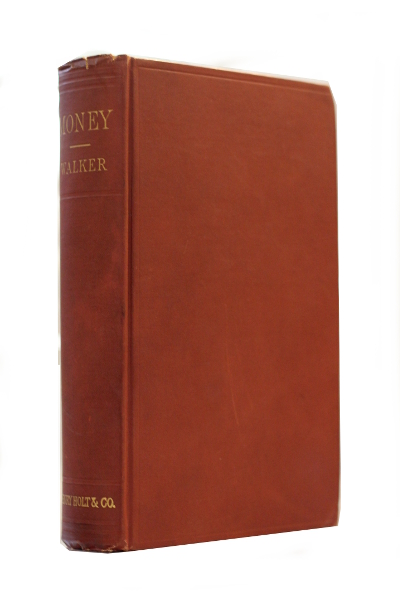Title: Money
Author: Francis Amasa Walker
Publisher: Henry Holt and Company, 1891.
Condition: Hardcover, no dust jacket. Very good. Some fraying to spine and minor tanning to edges. Overall in exceptional condition for its age.
About the book:
An important 19th century economics book discussion the function of money, the use of metals as money, convertible and inconvertible paper money, interspersed with a history of money. An important text by one of the first modern exponents of bimetallism, socialism and advocacy of profit sharing.
About the author (from Wikipedia):
Francis Amasa Walker (July 2, 1840 – January 5, 1897) was an American economist, statistician, journalist, educator, academic administrator, and military officer in the Union Army.
As an economist, Walker debunked the wage-fund doctrine and engaged in a prominent scholarly debate with Henry George on land, rent, and taxes. Walker argued in support of bimetallism and although he was an opponent of the nascent socialist movement, he argued that obligations existed between the employer and the employed. He published his International Bimetallism at the height of the 1896 presidential election campaign in which economic issues were prominent. Walker was a prolific writer, authoring ten books on political economy and military history. In recognition of his contributions to economic theory, beginning in 1947, the American Economic Association recognized the lifetime achievement of an individual economist with a “Francis A. Walker Medal”.
Walker accepted the presidency of the Massachusetts Institute of Technology in 1881, a position he held for fifteen years until his death. During his tenure, he placed the institution on more stable financial footing by aggressively fund-raising and securing grants from the Massachusetts government and implemented many curricular reforms, oversaw the launch of new academic programs, and expanded the size of the Boston campus, faculty, and student enrollments. MIT’s Walker Memorial Hall, a former students’ clubhouse and one of the original buildings on the Charles River campus, was dedicated to him in 1916.


